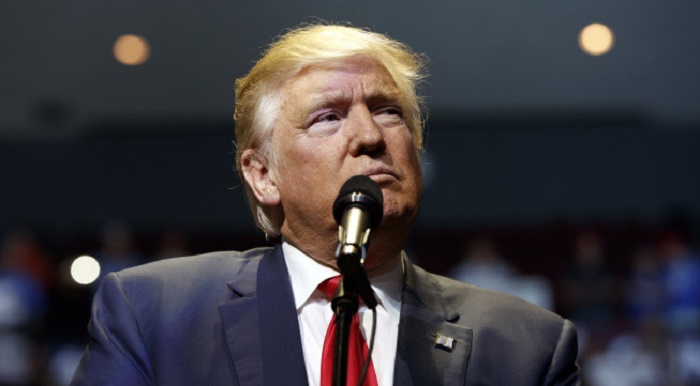Alwaght- While still some days are ahead of Donald Trump to inaugurate his presidency of the US, his remarks and stances as a president-elect everyday stir new controversies both at home and abroad. His very latest stance is about the US nuclear arms, coming a short time after a similar stance announced by Russia.
“The United States must greatly strengthen and expand its nuclear capability until such time as the world comes to its senses regarding nukes”, Trump posted on Twitter.
Running counter to the stances of both the Republican and Democratic parties which advocate a cut in number of the country’s nuclear warheads, the tweet has been faced with a league of reactions.
The New York Times, commenting on Trump’s suggestion, wrote that the president-elect’s idea could be in response to Russian President Vladimir Putin who hours before Trump’s tweet called for continuation of movement towards boosting the Russian nuclear capabilities. Putin urged his country’s nukes to be enhanced to a degree that easily infiltrate any anti-missile defense systems both now and in the future.
But Trump's aides said that the incoming president's stance was not practically linked to Putin's order for nuclear arms bolstering, according to the New York Times. Jason Miller, who is picked to be the new communication director of the White House under Trump, said in a statement that Trump was referring to “the threat of nuclear proliferation and the critical need to prevent it — particularly to and among terrorist organizations and unstable and rogue regimes".
The incoming White House communication director asserted that Trump in the past had highlighted the need for boost and renewal of the US nuclear deterrence as a vital way to achieve peace particularly from a strong position.
All in all, it is yet to be clear what plans Trump has designed to the country's nuclear warheads but some speculations can be made, including quitting the New Start Treaty, or Nuclear Arms Reduction Treaty reached with Russia and meant to scale down both sides' nuclear capability. Either way, there is a general consensus that such a move could leave deep impacts on the international security.
New nuclear arms race ahead?
The remarks of the president of Russia and the president-elect of the US about expansion of nuclear power unleashed waves of speculations on if the world will see a new weapons competition between Washington and Moscow, a Cold War-style one. The Washington Post is one– among many– that devoted a special focus on the case. The American daily maintained that Trump’s call for beefing up nuclear clout is coming in a situation that the global tendency since the 1980s has been leaning towards an opposite direction, namely reduction of the nuclear weapons stockpiles, with Russia and the US spearheading the process.
So, Trump’s and Putin's remarks are exactly on a collision course with the over-two-decade process of denuclearization. On the other side, Trump’s tweet contained another part in addition to call for nukes expansion: “until the world comes to its senses regarding nukes.” It is not clear what he means by saying so but Washington Post believes that this means that as long as Russia continues building up its nuclear capability, the US will do the same job in reaction.
Trump's words on nuclear capabilities have so far proved paradoxical. Trump in March said that paying attention to the risks of proliferation of nuclear arms is more necessary than focusing on the climate changes. But now he talks about things that if make any sense they mean proliferation of the US nukes. His remarks also allude to introducing new actors to the game. For example, he earlier, in an interview with the New York Times, had said that Japan and South Korea may need to develop nuclear weapons to confront a nuclear-armed North Korea.
It is noteworthy that Trump’s stance on the nuclear weapons, even if he lacks the serious ambition to enhance the country’s nukes, is in conflict with President Barack Obama’s stance. Addressing the memorial of Hiroshima, where first atomic bomb was dropped by the US on the Japanese city in the closing days of the Second World War, Obama called in for a “nuclear-free world”.
In fact, the matter of fall of the US nuclear stockpiles under the control of a person like Donald Trump was one of the heated arguments during the US presidential campaign days. “Voters should not give the nuclear codes of the United States to an erratic individual,” said Senator Marco Rubio, answering a question about if he was comfortable to see Trump having the nuclear codes. The Democratic candidate Hillary Clinton also took a similar stance to provoke concerns about Trump-controlled nuclear weapons.
Anyway, Trump's recent nuclear-related stances are the very latest issue that raises the global hackles about the US under a President Trump. Should Trump mean it about his stance on nuclear power strengthening, the consequences may be graver than all of his other controversial plans.



























